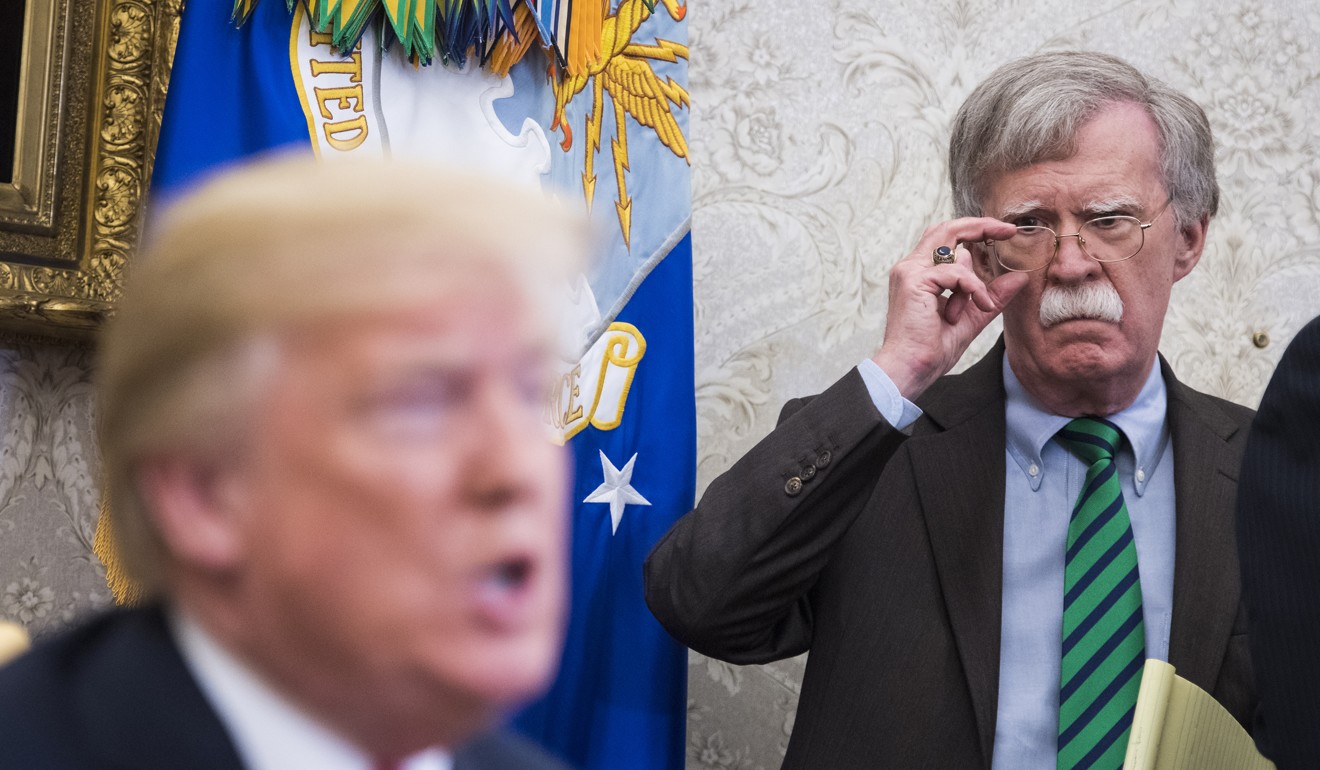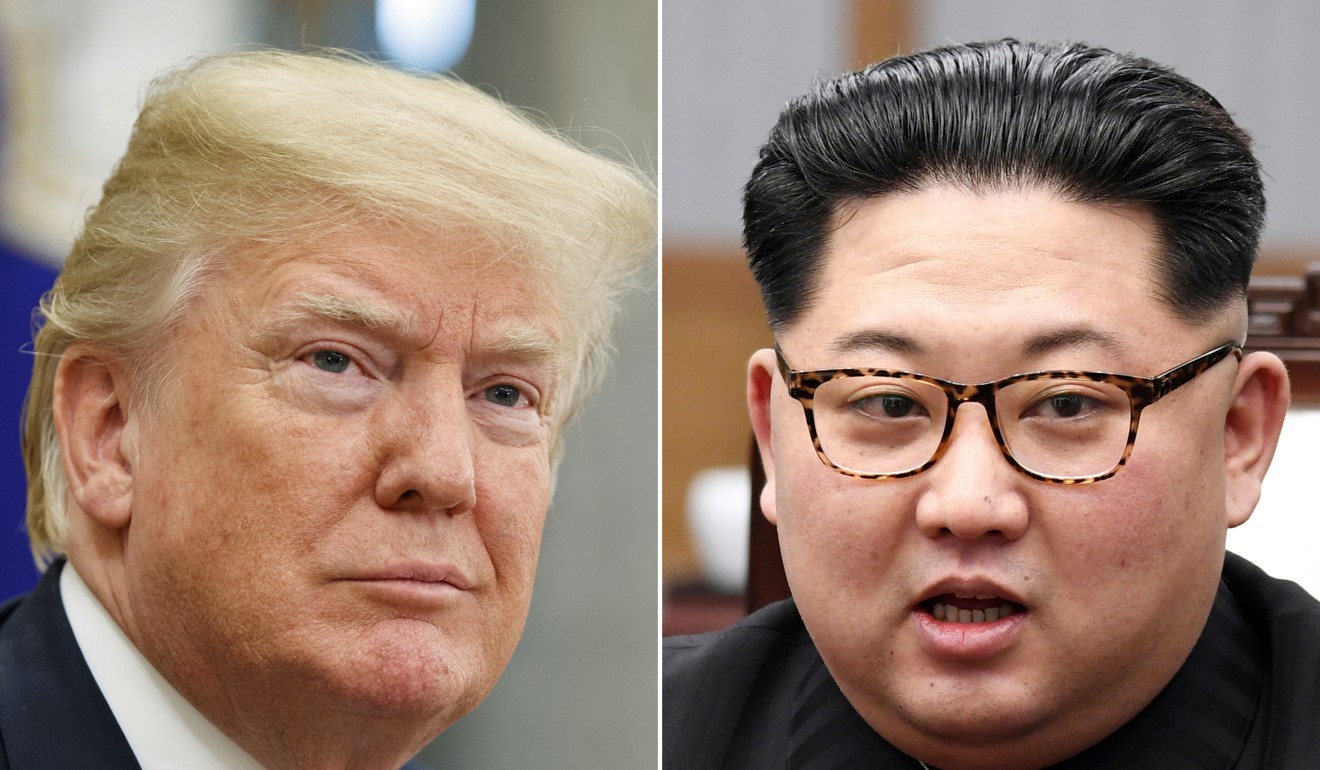
Why new de facto US ‘embassy’ in Taiwan may further rock ties with China
Offices of the new American Instituteto open next week will further strain to relations after spats over trade and South China Sea
After months of tussling over trade and North Korea, China and the United States could see relations shaken further over a key flashpoint next week – the opening of a new office in Taiwan.
The ceremony for the unveiling of a US$240 million office compound for the American Institute in Taiwan, the de facto US embassy on the island in the absence of formal diplomatic ties, could light another match in already tense relations between the world powers.
The scale of any fallout may partly depend on the rank of the US officials who attend the opening.
Washington is expected to walk a fine line with its guest list for the dedication ceremony on June 12, the same day as the high-stakes summit between US President Donald Trump and the North Korean leader Kim Jong-un in Singapore to discuss scrapping Pyongyang’s nuclear weapons programme.
Sources with ties to the US and Chinese government told the South China Morning Post earlier this month that no cabinet level official from the Trump administration would attend the event to avoid further antagonising Beijing.
The decision may also be a result of the opening ceremony clashing with the Singapore talks, but the US may still send a senior government official to the new compound in Taipei’s Neihu district in September when it officially opens for business, analysts say.
There had been media speculation that Trump’s National Security Adviser John Bolton, an advocate for closer US-Taiwan relations, may attend the opening ceremony for the Taiwan office to demonstrate US’ support for its ally, a move likely to incense Beijing.

But for Beijing, its claims to sovereignty over the self-ruled island of Taiwan, are the “most important, most sensitive core issue in China-US relations” President Xi Jinping was quoted as telling Trump by China’s foreign ministry.
The US adheres to the one-China policy which acknowledges that Taiwan is part of China, but still maintains a “robust unofficial” relationship with the island – selling its arms and pledging by treaty to aid its security.
Xin Qiang, an expert in Sino-US and Taiwan issues at Fudan University in Shanghai, warned that Beijing would object to the joint celebrations to open the new Taiwan office even if cabinet-level US officials were not present as it would violate the one-China policy that Beijing alone was the legitimate government of China.
“The US is playing the Taiwan card right now and using the Taiwan problem to add pressure on China, which is very dangerous,” he said. “North Korea’s nuclearisation, trade issues, the South China Sea – none are comparable to the Taiwan issue.
“If the US does anything provocative, then not only will Sino-US relations be damaged, but it would push the two countries towards military conflict and even war. No other issue has this same level of risk.”
While the US did send the cabinet-level official Gina McCarthy of the Environmental Protection Agency to Taiwan in 2014, there are fears the White House will dispatch a more senior official to the opening of the American Institute in Taiwan, which would breach Beijing’s bottom line, he said.
Trump has previously broken historic precedent by calling Taiwanese President Tsai Ing-wen before he took office. He has also surrounded himself with anti-China foreign policy hawks.
The Pentagon has also said it is mulling sending US warship to the Taiwan Strait as US lawmakers call for closer military and security exchanges, including sending American troops to attend the island’s Han Kuang military exercises.
Scott Kastner, an expert in China’s foreign relations and the Taiwan Strait at the University of Maryland, said there has been an “uptick in support for Taiwan in Washington”, seen in the recent passing of the Taiwan Travel Act, which allows high-level US officials to visit the island and vice versa.
“The US has a real interest in Taiwan, most obviously that it’s a democracy … and there’s clear kind of strategic reasons for the US to want to maintain Taiwan,” he said.

Its efforts most recently saw the Dominican Republic and Burkina Faso severing ties with Taiwan in favour of formal relations with Beijing, leaving Taiwan with only 18 allies, mainly smaller nations in Latin America and the Pacific.
Bonnie Glaser, senior adviser for Asia at the Washington-based think tank the Centre for Strategic and International Studies, said mainland Chinese pressure and coercion against Taiwan remains of “grave concern to American officials” as they seek ways to bolster the island’s security and economy so it can “continue to survive as a vibrant democracy in the region”.
“We have to think of creative ways to strengthen Taiwan security, its autonomy to try to push back where possible against Chinese coercion,” she said.
Besides using the stick, Beijing has also used carrots to “try and win over the hearts and minds of Taiwan”, such as cultural, educational and economic cross-strait exchanges.

Despite the provocative posturing from Beijing, analysts maintain that the likelihood of military conflict over Taiwan remains low, given the consequences not only to China-US relations but also regionally.
“I don’t think they’ll do it because of the ramifications of those actions and the message that would send to all the neighbouring countries,” said Alexander Tan, an expert in Taiwan politics at the University of Canterbury in New Zealand. “Having an all-out, direct military conflict with Taiwan is definitely not cost free.”
But as the US and China continue to battle over other issues, Taiwan will become a prominent chip on the table to “poke at China’s underbelly”, he said.
“I don’t think the leaders, elite and citizens in Taiwan are actually naive about this, but who else [do they have as allies]?” Tan said. “In a way, Taiwan does not have a lot of options.”
And with Taiwan seeing “frozen” relations with mainland China, it is clear at even the opening of the new American Institute office could raise the temperature on the Taiwan issue, observers said.
“If things are not moving forward, then literally they’re moving backwards,” said Tan.

